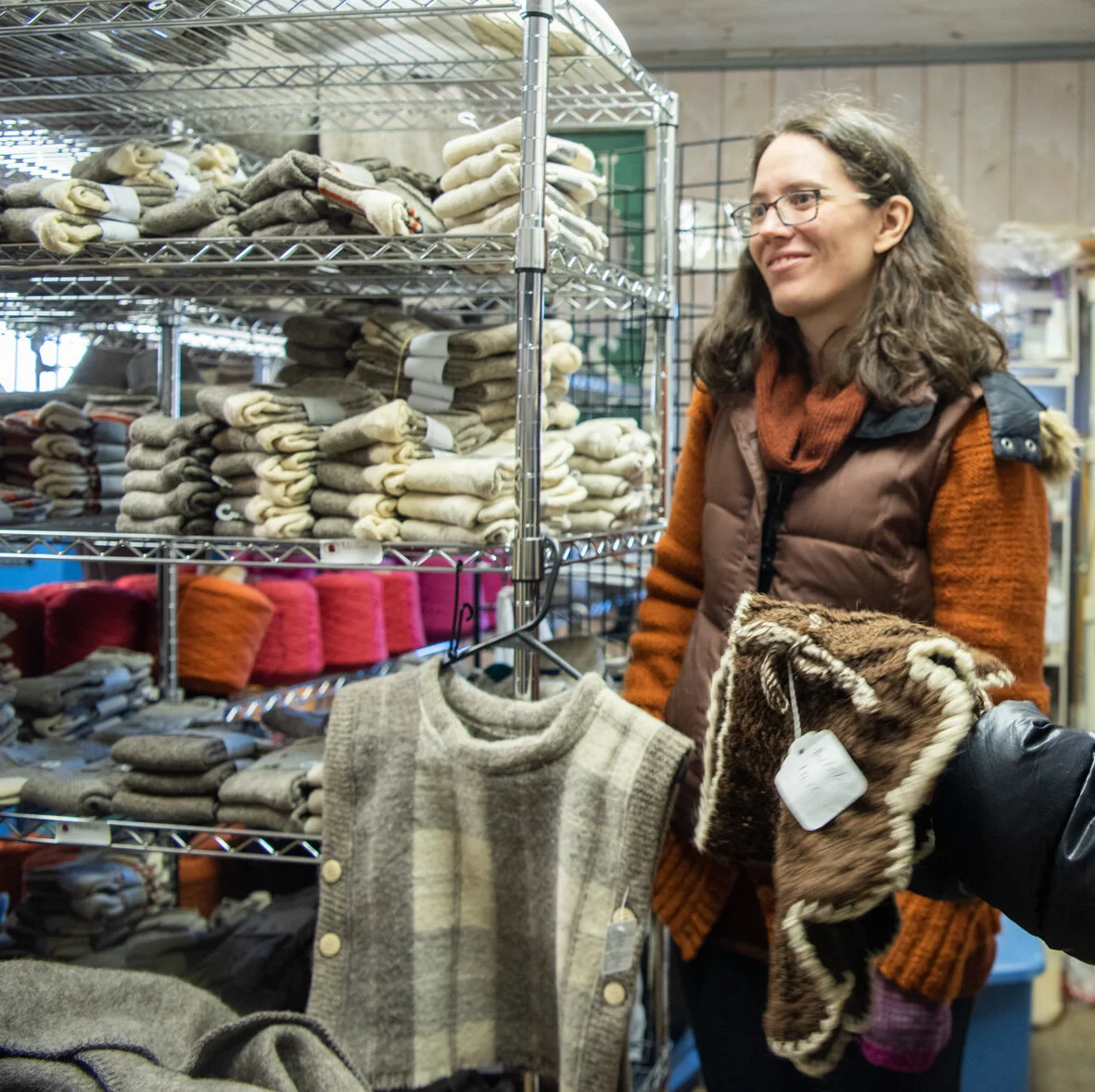Meet David Trumbull
Meet David Trumbull
Champion of wool and New England manufacturing
Wool and New England textile and apparel champion David Trumbull, of Agathon Associates, Boston, is our trade and domestic manufacturing supply chain consultant, recommended to us by the Fibershed Foundation in San Geronimo, CA. David advised on Fibershed’s 2016 National Mill Inventory, a groundbreaking survey cataloguing our capacity to manufacture the garments we Americans wear:
In 1965, 95% of the clothes Americans wore was made in the US.
In 1970, 75% of US clothes was made in the US.
In 1988, 74% of US clothes was made in the US.
In 1991, 56.2% of US clothes was made in the US.
In 2012, 2.5% of US clothes was made in the US.
In 2020, 3.0% of US clothes is made in the US.
David helped us understand the unintended consequences of policy and regulatory frameworks on the strength and viability of our domestic wool industry. For example, the 1993 Congressional “Reinventing Government” initiative phasing out wool and honey subsidies was a big hit to US fiber producers.
For the record – by our independent analysis – US direct subsidies to the fossil fuel industry totals $20 billion per year. Petroleum-based synthetic textiles directly benefit from these price supports, making them artificially cheaper to produce than wool.
When we add the true cost of environmental harm, sidelined as “externalities” on balance sheets, and subtract fossil fuel subsidies, synthetic textiles are exposed to be profligately expensive.
Another factor crushing our local wool industry was the massive imports of cheap Australian wool, huge yields driven by the Australian Reserve Price Scheme supports begun in the 1970s. By the time these surpluses were drawn down in 2001, China was entering the World Trade Organization and heavily investing in apparel manufacturing.
Absent subsidies and market protection leveling the playing field, our sheep farmers were left high and dry.
It’s not enough to love the fiber to revive our local wool economy, we must understand and enable a fair market system.
How did you learn about Wear Wool New London?
The Northern California Fibershed people recommended me to Jane based on similar work I did for them a few years ago.
What is one idea that has fundamentally changed you/your life trajectory?
It was something totally unplanned and unexpected. One day I happened to run into a friend of a friend and we had a brief conversation on a street corner. He asked me if I knew anyone looking for a job. With that I went from very unsatisfying employment to something I loved. I even took a pay cut to get into work in international trade on behalf of the U.S. textile manufacturing industry.
What analog object or activity do you enjoy?
A daily newspaper in print. They exist still, but now are cost-prohibitive and are so small in number of pages, physical size, and breadth of coverage, that they are nothing compared to what I grew up with
If you could live in another time period when/why?
Any time at all, as long as I was rich and comfortable. If I have to be poor and uncertain, I guess now is as good, and probably bettter than, any other time.
What has living during a pandemic taught you?
That the fear of death can rob you of the joy of life if you let it.
In one sentence your positive prediction or hope for the future.
That the pandemic, and many other factors that we are awakening to, will cause a permanent reassessment of how and where we get the things we consume and that there is a return to local production with a global economy.











